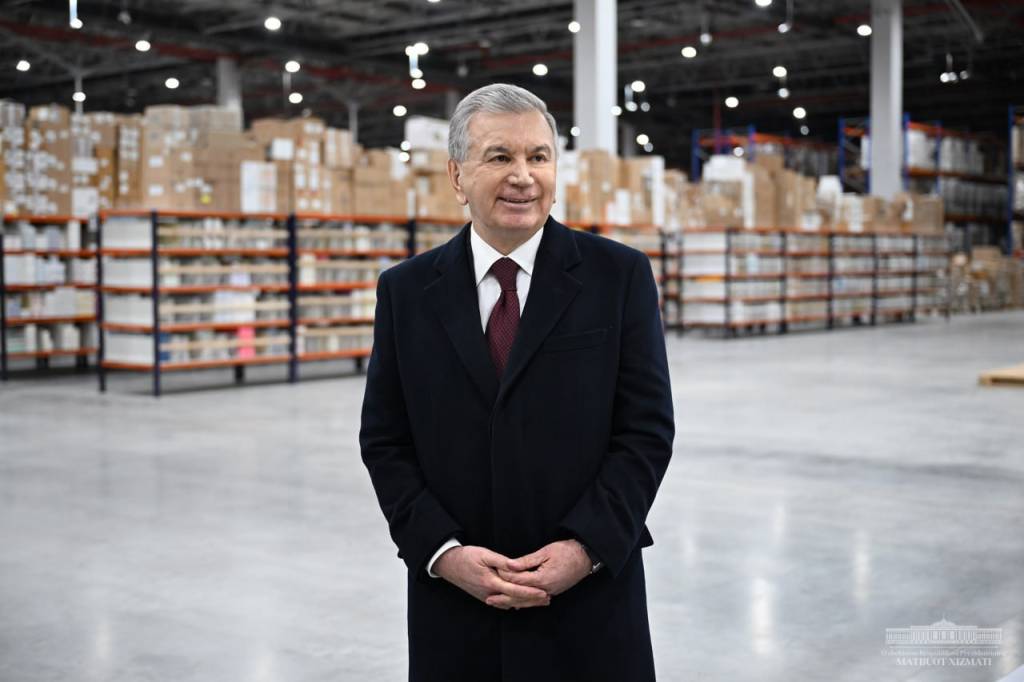
President Shavkat Mirziyoyev got acquainted with the activities of the Grand Pharm Logistics Hub in Zangiota district of Tashkent region.
The hub is located on the territory of the Tashkent Pharma Park innovation cluster and occupies an area of 10 hectares. As part of the $40 million project, a three-story administrative building, warehouses, a hotel, a canteen, and a hostel were built. More than 300 jobs were created.

The warehouse premises are 50 thousand square meters. The center can receive, store, and distribute large batches of pharmaceutical products per international standards. All processes are fully digitalized.
The Head of state got acquainted with the work of the hub.

The logistics center will also become an essential support for other manufacturers in the Tashkent Pharma Park. It provides storage and export services for products through the international SAP system. There are GDP and GSP certificates and licenses for customs warehouses and global transportation.

Air cooling systems have been installed to ensure stable temperatures even during cargo loading to maintain high-quality standards. The center also provides transportation services with more than 20 trucks, for which parking and maintenance are provided.

To date, logistic links have been established with Russia, Kazakhstan, Turkmenistan, Kyrgyzstan, Germany, Poland, France, Hungary, Romania, and Türkiye. The geography of cooperation continues to expand.
Responsible persons have been instructed to facilitate the simplification of storage and registration processes for products, reduce costs, and increase the availability of medicines.

The company regularly analyzes the pharmaceutical market and the needs of the medical sector, which helps expand supply routes. Currently, it supplies products to more than 7.5 thousand pharmacies across the country. In addition, an online pharmacy service has been introduced, and the number of partners in this area continues to grow.

As part of the GPH Academy project, cooperation has been established with several higher education institutions. Workshops have been created in three universities. Three thousand pharmacists have completed advanced training courses, and about thirty students have received scholarships and grants within the framework of this project.



UzA








